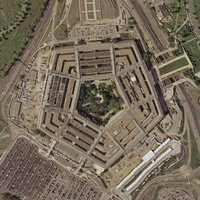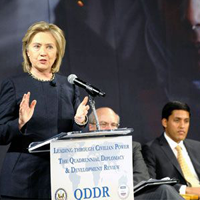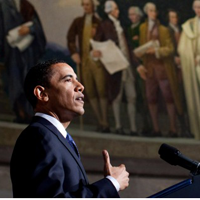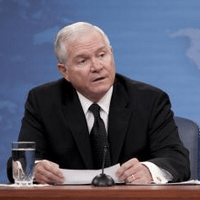California Governor Arnold Schwarzenegger recently signed an agreement with his counterparts in Acre, Brazil and Chiapas, Mexico, to cooperate on efforts to counter climate change. In an e-mail interview, Harriet Bulkeley, a professor in the Department of Geography and the Durham Energy Institute at the University of Durham, discussed subnational cooperation on climate change. WPR: How extensive is subnational cooperation on climate change? Harriet Bulkeley: Perhaps surprisingly, there is no clear answer to this question. We know that city and regional governments have cooperated in developing responses to climate change since the early 1990s, but the level and extent of […]
The Americas Archive
Free Newsletter

When Brazilian voters went to the polls last year, they voted for continuity. In electing Dilma Rousseff, a 63-year-old technocrat who had never run for office before, they responded to the pleas of their popular outgoing president, Luiz Inácio Lula da Silva. Lula, as he is known, had made his preference clear. “A vote for Dilma is a vote for me,” he told them, with both leaders promising that she would continue moving Brazil down the same path. When it comes to foreign policy, Dilma, as Brazilians call their new president, has also said she will follow her predecessor’s line. […]

We have long known that retired military officers have a cozy relationship with the military-industrial complex. A recent article in the Boston Globe fleshed out the nature of this relationship, detailing the extent to which retired senior officers have moved to private-sector defense companies in the last decade. Indeed, this career path has become considerably more common: “From 2004 through 2008, 80 percent of retiring three- and four-star officers went to work as consultants or defense executives, according to the Globe analysis. That compares with less than 50 percent who followed that path a decade earlier, from 1994 to 1998.” […]

As Argentines enjoy the final summer before electing a new leader later this year, uncertainty surrounds the direction of the country’s domestic and international policies. High levels of inflation, social unrest, growing insecurity, a dissatisfied and powerful agricultural sector, a continued spat with the U.K. over the Falkland Islands and accusations of being a haven for laundering drug money are but a few of the challenges the next Argentine leader will face. Four years ago, on the eve of presidential elections in 2007, much of this uncertainty did not exist or had not yet become apparent. At the time, the […]
I had the pleasure of participating on France 24’s panel discussion program, The World this Week, on Friday. The other guests were Matthew Saltmarsh of the IHT, Paul Taylor of Reuters, and Régis Le Sommier of Paris Match, and the topics we discussed included the Republican takeover of Congress, the situation in Côte d’Ivoire, and the protests in Tunisia and Algeria. Part one can be found here. Part two can be found here.

It has been depressing to watch the reaction of the American foreign-policy establishment to the Wikileaks debacle. Visceral rage has predominated, of course, but it has been mixed with a misplaced pride in the quality of State Department diplomacy. The leaks, we are told, provide reassuring evidence that all is working as it should be. Fareed Zakaria, for example, praised the insight and breadth of the analysis on offer. The cables, he wrote, are “well wrought” and reveal “clever minds” at work, with the best of them resembling something “straight out of Evelyn Waugh.” Such complacency comes as no surprise. […]

A central theme of Barack Obama’s 2008 presidential campaign was the need to revitalize the institutions of governance for 21st-century problems. “We cannot meet 21st-century challenges with a 20th-century bureaucracy,” he declared in one notable stump speech, and the sentiment was repeated throughout his campaign. Once in office, President Obama made the same claim regarding international order and governance. The 2010 National Security Strategy (NSS) (.pdf) acknowledged that in a world facing transnational threats, and one where “new centers of influence” would shape diplomatic options, international cooperation was a necessity. But it recognized that outdated institutions are as much an […]
The Brazilian aerospace conglomerate Embraer recently signed a deal with China’s state-owned AVIC International Leasing to finance the sale of $1.5 billion worth of aircraft over the next five years. In an e-mail interview, Daniel Vertesy, Ph.D. fellow in the Innovation Studies and Development program at UNU-MERIT, discussed Brazil’s aerospace sector. WPR: What is the current state of Brazil’s aerospace sector? Daniel Vertesy: The aerospace industry is once again growing in Brazil. Over the past three decades, Brazil has secured a place among the top 10 global producers, owing to the regional-scale aircraft-maker, Embraer. The financial crisis hit the sector […]
As federal deficits rise, U.S. Defense Secretary Robert Gates is looking to cut spending by close to $100 billion in the next five years, a sign that even the Pentagon’s massive budget is subject to government-wide belt tightening. Gates discusses the new budgetary measures, his China trip and “don’t ask, don’t tell” with Jim Lehrer. A transcript of the interview can be found here.

U.S. Defense Secretary Robert Gates unveiled his much-anticipated budget cuts last Thursday, signaling the beginning of the end of the decade-long splurge in military spending triggered by Sept. 11. Gates presented the package of cuts as being the biggest possible given the current international security landscape, warning that any deeper reductions could prove “potentially calamitous.” Frankly, I find that statement hard to swallow. How can America basically match the rest of the world’s defense spending combined, and then describe anything less as “potentially calamitous”? Clearly, given the “nation’s grim financial outlook,” as Gates himself put it, we’re going to have […]
I’ve been thinking a lot recently about the changing nature of power in the emerging geostrategic landscape, and one theme that I find myself returning to repeatedly is that of hub states. The idea being that in an increasingly integrated world, the best way to advance strategic interests is to maximize connectedness. But although connectedness is in itself valuable, some kinds of connectedness are more strategically valuable than others. So the key is to be a node that is highly integrated not just within the network, but within the right parts of the network. Now, like the old gag about […]
John Mearsheimer’s National Interest piece titled, “Imperial by Design,” has been getting a bit of attention, although less than I assumed it would judging from the attractiveness of its thesis in war-weary times. Although I agree in principle with the prescription, I found the diagnosis poorly argued. Mearsheimer declares that the U.S. has pursued a grand strategy of global dominance since the end of the Cold War, culminating in the Bush administration’s decision to remake the Middle East in its own image. He argues instead for a strategy of offshore balancing intended to economize American power and resources without abandoning […]
The consensus has it that the big winner of the Iraq War was Iran, in that the toppling of the Saddam Hussein regime removed the major barrier containing Iran’s regional ambitions. Certainly the Shiite-dominated and Iran-friendly government in Baghdad has freed up Tehran’s hand across the region — even if, as I’ve argued before, the inherently volatile nature of Iraqi politics means that Iran has inherited some time- and energy-consuming responsibilities in Iraq along with its increased influence. But I’d argue that the fears among Middle Eastern Arab states of Iran’s growing regional reach have more to do with their […]

This is Part II in a four-part series. Part I examined the follow-up agreement to the Kyoto Protocol. Part II examines the REDD+ agreement. Part III will examine financial assistance. And Part IV will examine technology transfers and adaptation. CANCÚN, Mexico — Amid all the discussion of global warming and how the international community can deal with it, the term “REDD +” was a particular focus of attention at December’s Cancún conference on climate change. The initiative stands out as the newest, but perhaps the least-tested and least-understood method to reduce global carbon emissions and abate rising temperatures. If the […]
Turkey has been pursuing an active trade agenda in South America recently. Bilateral deals negotiated or ratified in the past two months include an oil agreement with Venezuela, a free-trade agreement with Chile and a taxation agreement with Brazil. In an e-mail interview, Gareth Jenkins, senior associate fellow with the Silk Road Studies Program and Turkey Initiative, discussed Turkey-Latin American relations. WPR: What is the extent of Turkey’s diplomatic and trade ties with South America? Gareth Jenkins: During the Cold War, Turkey’s ties with South America were so limited as to be almost nonexistent, but a 1995 visit by Turkey’s […]

To kick off 2011, I thought I’d put together my top-10 international affairs wish list for the year, going from left to right on my wall map. But like Spinal Tap, only better, my list goes to 12: 1) Even more U.S. states pass decriminalization initiatives or medical marijuana laws. Yes, California’s infamous Prop 19 to legalize pot was narrowly defeated, 54 percent to 46 percent, but a majority of U.S. states are either considering such laws or already have them in place. In the four years since Mexican President Felipe Calderon declared war on the drug lords, 30,000 “soldiers” […]
